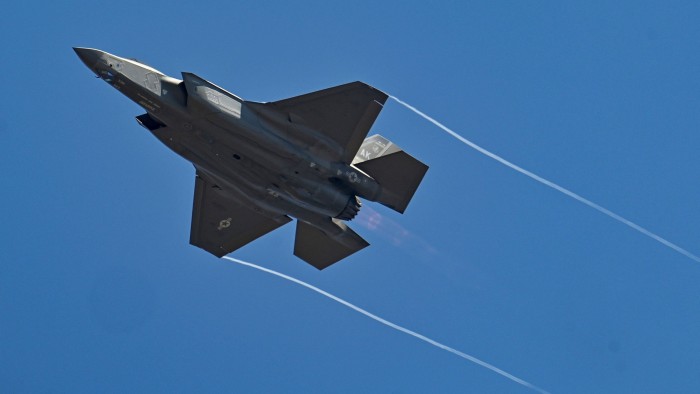Stay informed with free updates
Simply sign up to the Aerospace & Defence myFT Digest — delivered directly to your inbox.
The writer was US secretary of defence from 2021-25. He is CEO and co-founder of Clarion Strategies, a strategic-advisory firm
The Israel-Iran war is a reminder that we’re living in the most combustible security environment in decades. A key part of Israel’s self-defence network has been the Iron Dome antimissile system, which was co-produced with the US.
That model of defence co-production is worth highlighting and building upon. Co-production should be front and centre at this month’s Nato summit in The Hague.
Most of the pre-summit discussion has focused on the push to raise Nato members’ defence-spending commitment to 5 per cent of GDP — well above its old 2 per cent level. Yet the core issue isn’t just how much our allies spend on defence; it’s how our efforts mesh together for all of our long-term security.
In these dangerous times, the US and its allies are racing to strengthen the production capabilities of their defence industrial bases. But given recent political developments, many of America’s friends — especially in Europe — now hope to pursue that goal on their own, rather than through co-producing defence systems with the US.
Some of our European friends are planning to modernise their armed forces without America. And last year, the European Commission rolled out its first defence industrial strategy, which seeks to move away from European reliance on US military equipment. That would be a serious mistake.
I saw the power — and the limitations — of America’s extraordinary defence industrial base after Russian President Vladimir Putin’s unprovoked, all-out invasion of Ukraine in February 2022.
Since then, the US and its allies have provided vast amounts of munitions and equipment to help Ukraine defend itself from the Kremlin’s imperial aggression. America’s defence industry helped Ukraine resist Putin’s assault, but we still need far more work to strengthen supply chains, reduce bottlenecks and see a surge in production of key munitions and systems.
The war in Ukraine has shown the world that only together can the US and European defence industries create a sum that is greater than its parts. Each country or company can bring comparative advantages to an investment. Co-production can help lock in co-operation and partnership regardless of the politics of the day.
This is by far the best way forward for the US and allies eager to build up their own defence industrial bases. Pursuing defence co-production and joint development is vital to the security of us all. It allows US allies to build up capacity in their own countries while taking advantage of economies of scale and advanced American technologies.
Co-production strengthens our shared defence industrial base, reduces the often prohibitive cost of co-operative research and development ventures and keeps our defence systems interoperable and strong.
It can also speed up delivery timelines, since joint ventures often produce systems more swiftly and efficiently than traditional US arms sales under the foreign military sales programme.
That’s especially important because of today’s exceptionally perilous security landscape, including not just the China challenge and a highly aggressive Russia but also threats from Iran and North Korea. As America’s rivals band together, our allies and partners are sharply raising their defence spending.
Europe’s defence industries will need time to absorb the resources being showered on them and to stand up new production lines. Its defence market remains fragmented.
However satisfying it may be for some of our partners to insist that defence production can be a DIY project, generating a more capable military posture will take years if not decades of hard work — and the best way to get at the necessary technology and knowhow is to partner with the US.
We’ve shown we can do this in other parts of the world. My team at the Pentagon landed historic co-production deals in Asia, including working with Japan to develop cutting-edge defences against hypersonic missiles and moving to produce the precision-guided missiles known as GMLRS with Australia. We also made historic progress towards co-producing jet-engine technology and Javelin anti-tank missiles with India.
The US and our friends should play the long game, deepen our private-sector defence ties, and continue to produce state-of-the-art systems together. Our capabilities remain unsurpassed, and they’re going to stay that way.
America and its allies and partners will be far more secure if we meet our defence production needs together rather than going our separate ways.
Read the full article here




